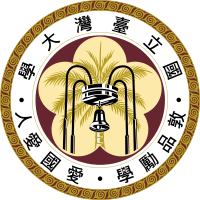【宏觀視野】Final Remarks on the International Conference on
【宏觀視野】
Final Remarks on the International Conference on "Freedom, Equality and Governance in the Making of Modern Democracy and a Market Economy"*
Alan T. Wood
Professor of History, University of Washington Bothell
This has been a fascinating conference. All of us were dealing with the issues of human freedom and equality in one way or another as they relate to politics and economics. Most of us, for obvious reasons, were focused on East Asia, including not only history but also contemporary policy. My paper argued that democracy will one day—perhaps long in the future—become the universal form of governance in human civilization, and therefore in China itself (as it has in Taiwan, Japan, and South Korea). It will succeed because it is, over time, better adapted than authoritarian governments in managing the massive, systemic complexity of modern, highly technological societies. Although authoritarian systems have been the most common structure of governance in the past (because they were able to organize the scarce resources of the state for military power), they are no longer able to deal with the vastly increased complexity of the modern world, and the corruption and inefficiency that invariably follow highly centralized power.
After the industrial revolution, military power increasingly became dependent on economic productivity. Economic productivity, in turn, became dependent on ever-more complex applications of technology. As technological complexity increased, top-down systems of organizing resources became more and more inefficient because the decision-makers at the top could not keep up with the massively complex exchange of goods and information at the bottom and in the system as a whole. The utter collapse of highly-centralized planned economies in the twentieth century, of which the Soviet Union was the most notable, was the result of this principle at work. It turns out that political systems are no different from economic systems in that they both require a balance of opposites: top-down order and bottom-up freedom.
Traditional Chinese philosophy (with its emphasis on taiji 太極 and wuwei 無為 and its reverence for nature), modern quantum physics (focused on the back-and-forth relationship of matter and energy), and biocultural evolution (with its emphasis on group selection) are now converging in their focus on this underlying complementarity of opposites. At every level of nature, there is a perpetually changing balance between top-down structure and bottom-up freedom, integration and autonomy, unity and diversity, whole and part. From atoms to molecules to cells on up through the various levels of organization in nature, there is a natural tension between these opposing needs. The relationship between these opposites, however, is not adversarial but complementary. An atom is autonomous insofar as it has its own independent identity. At the same time, it is also integrated with other atoms to form molecules with emergent properties that did not exist in the parts alone. Human organizations and natural organisms follow the same pattern. They are both complex adaptive systems. Authoritarian systems may sometimes prevail in the short term, but they are doomed to fail over the long term. Democratic systems may sometimes fail in the short term, but they are destined to prevail over the long term.
* The Conference was sponsored by the Institute for Advanced Studies in the Humanities and Social Sciences, National Taiwan University, November 6-7, 2015.



